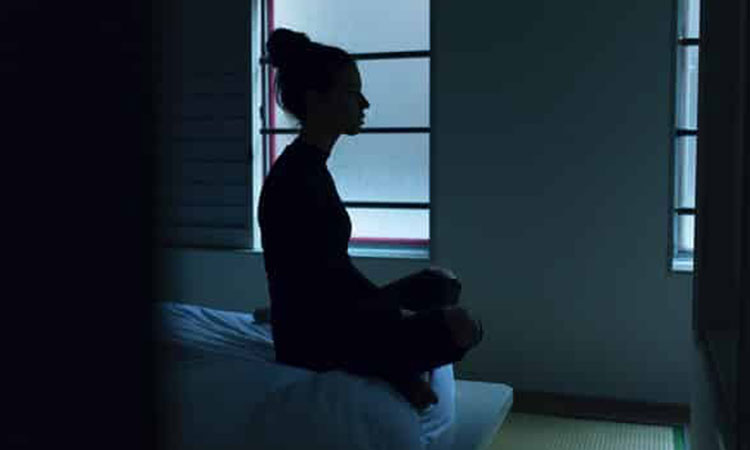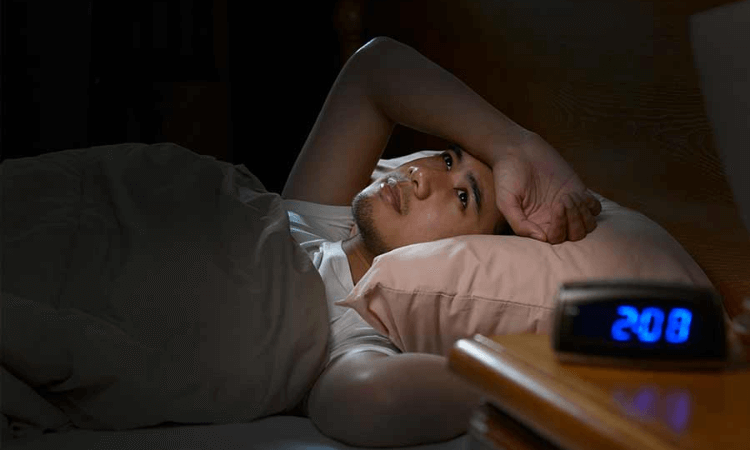Mood disorders are mental conditions that can disrupt every area of your life. But, effective treatment can provide relief, hope, and stability.
At Recovery In Tune, we offer specialized care for people with mood disorders. We combine evidence-based programs, therapies, and medical support to guide you on the road to recovery.

What to Know About Mood Disorders
Mood disorders are a category of mental health conditions that affect your emotional state. Depending on the mood disorder, you may feel sadness, elation, anger, or irritability for extended periods of time.
We expect that our moods change regularly, but these feelings shouldn’t persist for weeks at a time. Typically, a mood disorder is diagnosed if symptoms have been present for several weeks.
The effects and symptoms of mood disorders can cause difficulties with relationships, work, and daily routines. This can also cause stress, potentially leading to other symptoms and health conditions.
Fortunately, mood disorders can be managed. With the right care, you can find emotional balance and well-being. At Recovery In Tune, our team is dedicated to bringing hope and emotional wellness back into your life.
Causes & Risk Factors of Mood Disorders
There isn’t any single cause for mood disorders. Research indicates that mood disorders arise from a variety of factors, including biological, genetic, and environmental influences. These factors combined can increase your likelihood of developing a mood disorder.
It can help to be aware of the risk factors of mood disorders to understand your risk level. Some common risk factors for mood disorders include:
- Family history of mood disorder or other mental health conditions
- Experiencing traumatic events, especially as an adolescent
- Abnormalities in brain structure
- Having a neurological disorder like multiple sclerosis or epilepsy
- Having a movement disorder like Parkinson’s
- Substance use or withdrawals
- Having other mental health conditions
Understanding these risk factors can help you watch for early signs of mood disorders.
Common Symptoms of Mood Disorders
Symptoms can vary based on the type of mood disorder you have. Some common symptoms of mood disorders include:
- Persistent feelings of sadness or hopelessness
- Extreme mood swings
- Prolonged periods of high energy followed by periods of depression
- Loss of interest in activities you once enjoyed
- Chronic fatigue
- Changes in appetite
- Weight loss or weight gain
- Changes in sleep patterns, like insomnia
- Difficulty concentrating
- Impulsivity or unnecessary risk-taking
- Rapid speech
- Racing thoughts
- Feeling irritable or angry
- Feelings of worthlessness or guilt
- Thoughts of death or suicide
Recognizing your symptoms is the first step to recovery. If you have any symptoms of a mood disorder, Recovery In Tune can provide the tools and support to help you regain control.
Types of Mood Disorders Treated at Recovery In Tune
Mood disorders encompass a variety of mental health disorders. Recovery In Tune offers treatment for several types of mood disorders, each requiring a unique approach. Here are some of the types of mood disorders we treat:
- Major depression: Major depressive disorder is characterized by intense, prolonged feelings of sadness or hopelessness that affect daily life. Clinical depression is diagnosed if symptoms of depression last for two weeks or longer.
- Dysthymia: Dysthymia is a chronic form of mild depression that lasts for two years or more. Dysthymia is also known as persistent depressive disorder (PDD).
- Bipolar disorders: Bipolar disorder is characterized by mood swings between manic and depressive episodes. These mood changes can be intense and can affect energy levels, mood, and behavior. Manic episodes may also vary between milder episodes (hypomania) and extreme episodes (hypermania) accompanied by psychotic symptoms.
- Substance-induced mood disorder: Depression or mania triggered by substance use or withdrawal. This type of mood disorder requires co-occurring treatment to address both substance use disorder (SUD) and the mood disorder.
- Other types of mood disorders: Other types of mood disorders we can help treat include postpartum depression, seasonal affective disorder (SAD), depression with psychosis, treatment-resistant depression, premenstrual dysphoric disorder (PMDD), and more. Our treatment also encompasses all forms of bipolar, including bipolar I, bipolar II, and cyclothymic disorder (cyclothymia).

Now is the perfect time to begin to heal!
Long Term Effects of Mood Disorders
When left untreated, mood disorders can lead to long-term complications. Some potential long-term side effects of mood disorders include:
- Increased mental health risk: People with mood disorders have a higher risk of developing other mental disorders, like psychotic disorders and lifetime anxiety disorders.
- Disability: People with untreated mood disorders may find it difficult to care for themselves. Severe mood disorders can also cause someone to be completely unable to care for themselves.
- Trouble maintaining livelihood: Mood disorders can cause people to miss work or school, leading to loss of employment, expulsion, and other negative outcomes.
- Increased risk for SUD: Those with mood disorders are at greater risk for substance use disorder and alcohol use disorder.
- Chronic health issues: People with certain mood disorders have an increased risk for cardiovascular disease, obesity, and other chronic medical conditions.
- Suicidal ideation or behaviors: Mood disorders are associated with an increased risk of suicidal thoughts, suicide, and suicide attempts.
Seeking treatment can help prevent or lessen the long-term effects of mood disorders. Recovery In Tune can help provide a path toward emotional and physical well-being and stability.
Mood Disorder Treatment Program in Davie, FL
Recovery In Tune offers several evidence-based, holistic programs to treat mood disorders. We personalize our care to meet your individual needs based on your schedule and the severity of your condition.
Here are some of the mood disorder treatment programs we offer here in David, FL:
Our mental health partial hospitalization programs (PHP) offer a middle ground between 24/7 inpatient care and occasional outpatient services. In our PHP, patients participate in daily therapy, group sessions, and skill-building activities before returning home at night.
This program lets our patients focus heavily on recovery while still maintaining a connection to their regular lives.
Our mental health intensive outpatient program (IOP) is a flexible mood disorder treatment program for those who need support while also maintaining their daily routine.
Patients can attend outpatient therapy, counseling, and support sessions daily or weekly. This gives you the tools to manage your mood disorder while still living your life.
It’s common for people with mood disorders to experience co-occurring substance use disorders or other mental health issues. Our dual diagnosis program takes care to address all of your mental health disorders.
For each of our programs, you can access therapies and services such as:
- Therapies: Access to various therapeutic options such as psychotherapy, cognitive behavioral therapy, and other talk therapy interventions.
- Life skills and education workshops: Our workshops teach practical skills and provide educational resources to better equip you for everyday life.
- Psychiatric services: Access to our mental health professionals and services. The Recovery In Tune team offers holistic treatment options, including therapy, support groups, medications, or a tailored combination to address your specific mood disorder.
- Medication-assisted treatment: In some cases, medication may be necessary for mood disorder treatment. Some common medications for mood disorders include mood stabilizers like lithium, antipsychotics, serotonin reuptake inhibitors (SSRIs), serotonin-norepinephrine reuptake inhibitors (SNRIs), and tricyclic antidepressants (TCAs).
Therapies for Mood Disorders at Recovery In Tune
At Recovery In Tune, we offer a range of therapies to address depression and other mental disorders. These therapies are evidenced-based approaches that support holistic recovery. Our therapies for depression include:
Our 12-step facilitation therapy is based on the principles of the 12-step program. This approach involves taking accountability while also building a supportive community of peers, friends, and family members.
Cognitive behavioral therapy (CBT) is an evidence-based form of talk therapy that teaches people to challenge and change negative thought patterns. Changing these thoughts can help clients develop healthier perspectives and coping mechanisms for their mood disorders.
Mindfulness and meditation are stress management practices that help clients focus on the present moment. This helps to promote emotional balance and reduce stress. Mindfulness and meditation can be particularly helpful for managing the highs and lows that sometimes accompany mood disorders.
Physical movement through activities like adventure therapy or yoga can help reduce stress, build confidence, and improve mood. These alternative therapies can be great supplements to a mood disorder treatment program.
It can be difficult for patients with a history of trauma to confront these experiences, but it’s also an important part of the healing process.
Trauma therapy at Recovery In Tune provides a safe space to explore and process these past events, ultimately reducing their impact on your current mental state.
Find Quality Care for Mood Disorders at Recovery In Tune
If you want to manage your mood disorder and regain control of your life, Recovery In Tune is here to help. Our programs in Davie, Florida, provide compassionate, personalized care for you or a loved one who is living with a mood disorder.
You don’t have to face this journey alone. Our team of mental health professionals and healthcare providers can help you find hope and live a happier, healthier life. Contact us today to learn more about your treatment options and to begin your path to recovery.
Mood Disorder Treatment FAQs
The best treatment for a mood disorder varies from individual to individual. Often, mood disorder treatment combines therapy, support groups, and medications if necessary.
Recovery In Tune will customize your treatment plan to provide the most effective support possible.
Treatment for mood disorders can be highly effective. Patients often experience significant symptom relief, improved quality of life, and sustainable recovery.
There isn’t a permanent cure for mood disorders, but these conditions can be managed successfully with treatment. Therapy, lifestyle changes, support, and medication can help you live a healthy and full life.
Sources
- American Psychiatric Association. “What Are Bipolar Disorders?” Retrieved from: https://www.psychiatry.org/patients-families/bipolar-disorders/what-are-bipolar-disorders. Accessed on October 31, 2024.
- Mayo Clinic. “Mood Disorder.” Retrieved from: https://www.mayoclinic.org/diseases-conditions/mood-disorders/symptoms-causes/syc-20365057. Accessed on October 31, 2024.
- National Institutes of Health (NIH). “Mood Disorder.” Retrieved from: https://www.ncbi.nlm.nih.gov/books/NBK558911/. Accessed on October 31, 2024.
- National Institutes of Health (NIH). “Mood Disorders and suicide.” Retrieved from: https://pubmed.ncbi.nlm.nih.gov/11765092/. Accessed on October 31, 2024.
- National Institute of Mental Health (NIMH). What is Depression?” Retrieved from: https://www.nimh.nih.gov/health/topics/depression. Accessed on October 31, 2024.
- Yale Medicine. “Mood Disorder.” Retrieved from: https://www.yalemedicine.org/conditions/mood-disorders. Accessed on October 31, 2024.